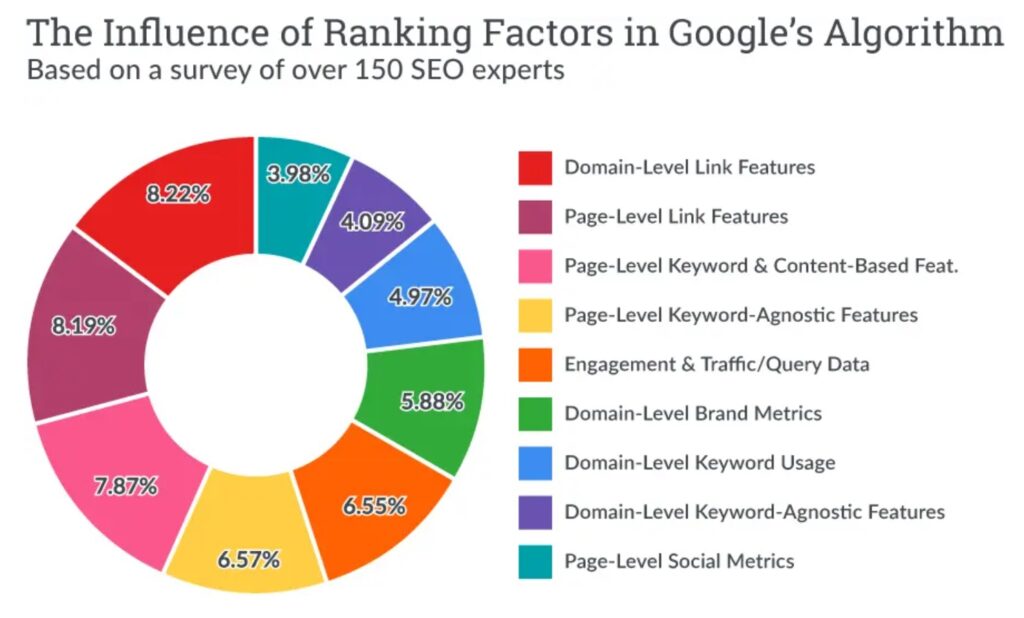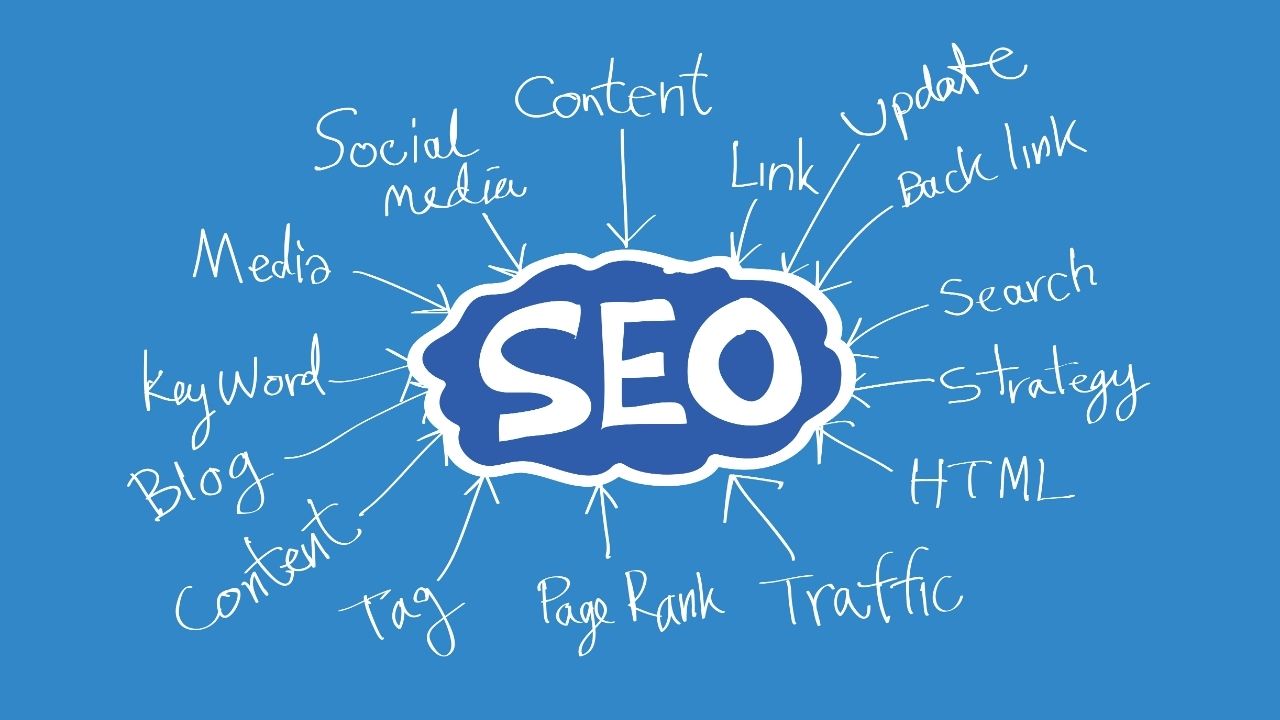Ultimate Guide to SEO: How Does It Work, Why Is It Important, and How to Improve It in 2021
Ranking higher in search engines like Google is important as it’s one of the factors that determines how much traffic will go to your website. The higher your website ranks, the more organic traffic you get. So, this means more chances for people to engage with your posts or products you post on your website.
To better understand how you can rank your content higher in the search engines, you need to first understand how SEO works. In this article, we will help you to understand SEO, what is it, how does it work, why is it matter to your website, and how to improve it.
What Is SEO?
SEO stands for Search Engine Optimization. It means the process of improving your website to increase its visibility when people search for posts or products related to your website in Google, Bing, and other search engines. The better visibility your pages have in search results, the more likely for people to discover your content online. As a result of ranking higher in search engines, you will get an increase in traffic to your website.
In Google and other search engines, the results page usually features paid ads at the top of the page then followed by the regular results called the “organic search results“. Unlike paid search, this “organic search result” is the source of traffic from SEO. Therefore, to be able to feature in that, you need to optimize your website SEO.
Why SEO Matters for Website?
SEO is a key part of online marketing because search is one of the primary ways that users navigate the web. To understand the value of SEO, let’s break our definition into three parts:
Organic search results
You get the organic search results from the SERP (search engine results page) that are most relevant to the user’s query. It’s heavily relying on your content quality and website performance. Unlike paid ads, you can’t pay for your page to rank higher in organic search results.
Quality of organic traffic
It’s important to ensure how relevant your content is to the user and their search query. You can attract all the visitors in the world to your website, but if they’re found out that what they’re searching for is not on your website then they will leave immediately. High-quality SEO capitalizes on the search engine’s effort to match a user’s search intent to the web pages listed in the SERP.
Quantity of organic traffic
The number of users who reach your site via organic search results determines your SEO. Users are far more likely to click on search results that appear near the top of the SERP, which is why it’s important to use your SEO strategy to rank relevant pages as high as you can. The more high-quality visitors you attract to your site, the more likely you are to see an increase in valuable conversions.
How Does Search Engines Work?
Search engines (e.g. Google and Bing) use crawlers, sometimes also called bots or spiders, to gather information about all the content they can find on the internet. The crawler starts from a known web page and follows internal links to pages within that site as well as external links to pages on other sites. The content on those pages, plus the context of the links it followed, helps the crawler understand what each page is about and how it’s semantically connected to all of the other pages within the search engine’s massive database, called an index.
When a user types in a query into the search box, the search engine uses complex algorithms to bring out the result to answer the query that believes to be the most accurate and useful list of results for that query. These organic results can include web pages full of text, news articles, images, videos, local business listings, and other more niche types of content.
There are a lot of factors that go into the search engines’ algorithms:

How Does SEO Work?
The algorithm of search engines have evolved to be extremely complex to keep up with changing user behavior and advances in machine learning. There are hundreds or even thousands of different ranking factors to determine the rankings of their SERPs. Some of the factors that affect SERP are:
Crawlability
Before Google can even consider ranking your content, it first needs to know that it exists. The method is called crawling.
To put it simply, Google follows links on the pages that are already in Google’s index. Next time they crawl that site, they’ll follow that link to discover your website’s homepage and likely add it to their index. From there, they’ll crawl the links on your homepage to find other pages on your site.
However, there are several things that can block Google’s crawlers, such as poor internal linking, internal links with no-follow tags, no-indexed pages, and pages that are blocked in robots.txt.
Mobile-friendliness
Pages that aren’t optimized for mobile lead to dissatisfaction. You should know that 63% of Google searches come from mobile devices, and that number is growing every year. Moreover, it’s also used for indexing and ranking. So, even if your pages have many clicks but are not mobile-friendly, people can leave your website and therefore affecting your SEO. You can check if your web pages are mobile-friendly with Google’s mobile-friendly testing tool.
Pagespeed
Pagespeed is how fast your page loads. It’s a ranking factor on desktop and mobile. If visitors are clicking on search results that take too long to load, that leads to dissatisfaction and therefore affecting the SEO too. To check the speed of your web pages, use Google’s Pagespeed Insights, Pingdom, GTmetrix, and more.
Read also: How to Increase Website Speed and Get a Lightning Fast Website in 2021
Search intent
Finding a keyword or keywords that you want to rank for is easy. However, to achieve that you need to know how to match your keywords with the most searched queries. Google is interpreting the motive behind the query and showing results the user wants to see. To optimize your search intent you can use the 3C:
- Content-type: Are most of the results blog posts, product pages, category pages, landing pages, or something else?
- Content format: Is Google mainly ranking how-to guides, list-style articles, tutorials, comparisons, opinion pieces, or something entirely different?
- Content angle: Is there a common theme or unique selling point across the top-ranking pages? If so, this gives you some insight into what might be important to searchers.
Backlinks
Google’s ranking algorithm is based on something called PageRank. In simple terms, this interprets backlinks as votes. Generally speaking, pages with more votes tend to rank higher. You can use the Skyscraper Technique, which is swapping out your page links with other websites that have the same post content as yours.
Among many factors that affect them, there are two important factors: On-page SEO and Off-page SEO.
Two Main Factors of SEO
On-page SEO
On-page SEO factors are all the things on your website that you have a direct influence on. These factors include:
- Technical aspects – the quality of your code and site speed.
- Content-related aspects – the structure of your website, the quality of your content, metatags & title.
Off-page SEO
Off-page SEO is the optimization happening outside of your website itself. For instance, earning backlinks, social media attention, and other marketing activities. This part of SEO involves building relationships and creating content people want to share.
The more quality, relevant sites that link to your website, the higher your position in Google will be. Hence, the most important things to improve are by creating high-quality content and compete well in your niche.
Black Hat or White Hat?
Before going into steps on “how to improve SEO”, you need to know that there are mainly two types of SEO strategies: Black Hat SEO & White Hat SEO.
Black Hat SEO
People who are going for quick gains of SEO are often referred to as “black hat SEO.” People who implement black hat SEO tend to use sneaky tactics like keyword stuffing and link scraping to rank quickly.
We don’t recommend you to use this strategy as it might work for the short-term and get you some traffic to your site, but after a while, Google ends up penalizing and even blacklisting your site so you’ll never rank.
White Hat SEO
On the other hand, white hat SEO is the way to build a sustainable online business. This strategy will focus on your human audience. You’ll try to give them the best content possible and make it easily accessible by playing according to the search engine’s rules.
To summarize, here are the main differences between black hat and white hat strategies:
Black Hat | White Hat |
|
|
How to Improve SEO?
After understanding how SEO works then let’s get to know what steps to improve your website SEO. Actually improving a site’s rank involves leveraging various SEO techniques to optimize the site for search:
Keyword research
Keyword research is the starting point for SEO by creating content that has a chance to rank high. It involves looking at what keywords a site is already ranking for, what keywords competitors rank for, and what other keywords potential customers are searching for. Doing this will provides you with direction on what existing content can be optimized and what new content can be created.
Content auditing
After identifying the potential keywords, the next thing you do is content auditing. This includes both updating existing content and creating brand new pieces of content. Also, it’s important to research what content is already out there and create a compelling piece of content that provides a positive user experience and has a chance of ranking higher in the search engine results. Good content also has a greater chance of being shared on social media and attracting links.
Link building
Because backlinks are one of the core ranking factors in Google and other major search engines, obtaining high-quality backlinks is one of the main levers that SEO has. This can involve promoting good content, reaching out to other websites and building relationships with webmasters, submitting websites to relevant web directories, and getting the press to attract links from other websites.
On-page optimization
Improving the structure of the page can have tremendous benefits for SEO, and is a factor that is entirely in the control of the webmaster. Common on-page optimization techniques include optimizing the URL of the page to incorporate keywords, updating the title tag of the page to use relevant search terms, and using the alt attribute to describe images. Updating a page’s meta tags (such as the meta description tag) is beneficial because it can increase the click-through rate from the SERPs.
Site architecture optimization
Besides external links, internal links also play a large role in SEO as well. Because a search engine optimizer can improve a site’s SEO by making sure key pages are being linked to and that relevant anchor text is being used in those links to help improve a page’s relevance for specific terms. Creating an XML sitemap can also be a good way for larger pages to help search engines discover and crawl all of the site’s pages.
Semantic markup
Semantic markup (such as Schema.org) is used to describe the meaning behind the content on a page, such as helping to identify who the author of a piece of content is or the topic and type of content on a page. Using semantic markup can help with getting rich snippets displayed on the search results page, such as extra text, review stars, and even images.
Rich snippets in the SERPs don’t have an impact on search rankings but can improve CTR from search, resulting in an increase in organic traffic.
What Are SEO Tools?
There are many tools and software that SEO relies on to help with optimizing websites:
- Google Search Console
You can use Google Search Console to see your website ranking on Google. In addition to that, you can get traffic reports for top keywords & pages, and also help to identify and fix on-site technical issues. - Google Ads Keyword Planner
Keyword Planner provides keyword suggestions and keyword search volume, which can be helpful when doing keyword research. You can also use AnswerThePublic to get various keyword suggestions. - Backlink analysis tools
There are a number of link analysis tools out there, the two primary ones being Ahrefs and Majestic. Backlink analysis tools allow users to analyze which websites are linking to their own website, or the websites of competitors, and can be used to find new links during link building. - SEO platforms
There are many SEO platforms that provide a suite of SEO tools to optimize sites. You can do track keyword rankings, help with keyword research, identify on-page and off-page SEO opportunities, and many other tasks related to SEO using one platform. Some of the most popular include Moz, Semrush, Majestic, BrightEdge, Searchmetrics, and Linkdex. - Social media
Most social media sites don’t have a direct impact on SEO, but they can be a good tool for networking with other webmasters and building relationships that can lead to link building and guest posting opportunities.
Also, we have compiled all essential SEO plugins that you can use on your website.
Read also: Ultimate SEO Plugins to Empower Your WordPress Site in 2021
Tutorial
Conclusion
SEO can help you to rank higher your website on search engines, like Google, Bing, etc. To do SEO and achieve top rank on SERPs, you need to understand how search engines and SEO works. There are many factors that affect them both on-page and off-page. For instance, crawlability, mobile-friendliness, page speed, search intent, backlinks, content quality & structure. You can start improving your SEO by doing keyword research, content auditing, content marketing, on-page optimization, site architecture, and semantic markup.



